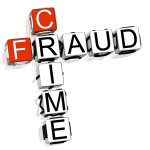New Jersey Transit has until Oct. 28 to disclose to lawmakers the agency’s progress on installing accident-prevention technology, release figures on substance-abuse-related accidents and detail penalties for violating federal rules.
The directive came from a joint state legislative panel armed with subpoena power as it examines safety and operations at the nation’s third-largest mass-transportation provider. The investigation comes after a Sept. 29 rail crash in Hoboken. A woman waiting on a platform died and more than 100 passengers were injured when a locomotive traveling twice the speed limit rammed a bumper.
The 30 questions, sent late Monday and obtained by Bloomberg, were addressed to Rick Hammer, the transportation commissioner and New Jersey Transit board chairman who was grilled for more than two hours last week in Trenton by members of the Assembly judiciary and the Senate legislative oversight committees. Lawmakers were frustrated in their quest for facts because Steve Santoro, the new executive director, skipped the hearing, citing a scheduling conflict.
Delay Headaches
The pressure on New Jersey Transit, whose customers use buses and trains to commute to New York City jobs, coincides with slipping service and increased breakdowns amid higher fares and ongoing raids of the capital budget to pay for day-to-day expenses. Hammer and Santoro didn’t respond to e-mails for comment on whether the agency will meet the Oct. 28 deadline to provide answers. New Jersey Transit “is working hard to gather the information,” Nancy Snyder, a spokeswoman, said in an e-mailed statement.
In the letter to Hammer, panel members asked why New Jersey Transit has lagged behind other railroads, including the Port Authority of New York and New Jersey’s PATH system, on installing positive train control, the technology that can override human error. At last week’s hearing, Hammer wasn’t certain whether the agency this year submitted an annual update on its progress, as required by federal regulators.
Senator Bob Gordon, a Fair Lawn Democrat who is chairman of the oversight panel, pressed for the agency’s methodology on counting breakdowns. Hammer testified last week that officials report more than federal laws require, making New Jersey Transit appear to have more incidents than Metro-North, the Long Island Rail Road and SEPTA, which serves the Philadelphia area. Senator Joe Kyrillos, a Middletown Republican, asked for the criteria used to define an event as an “accident” rather than an “incident.”
Federal Audit
Gordon’s counterpart on the panel, Democratic Assemblyman John McKeon from West Orange, pressed for details of a consultant’s safety audit that “found no widespread problems.” The joint panel also asked for more information about a Federal Railroad Administration audit this year that “found numerous safety-related incidents and violations.”
Questions about the “high rate” of drug and alcohol-related incidents and accidents were raised by Gordon and Republican Assemblyman Michael Patrick Carroll from Morris Plains. Republican Senator Thomas H. Kean Jr. from Westfield asked about train operators who have had “performance issues” but weren’t fired.
Fare increases and budget deficits also were a focus. Hammer last week told the panel that the agency has enough funding for capital and operating costs.
“New Jersey Transit has repeatedly come into budget season with unexpected deficits that had to be closed through cost-saving measures,” wrote Assemblywoman Elizabeth Maher Muoio, a Democrat from Pennington. “Please provide a detailed analysis of budgetary risks that could result in a similar mid-year deficit again.”
Was this article valuable?
Here are more articles you may enjoy.

 J&J, Kenvue Told to Pay $45 Million to Baby Powder User’s Family
J&J, Kenvue Told to Pay $45 Million to Baby Powder User’s Family  California Sees Two More Property Insurers Withdraw From Market
California Sees Two More Property Insurers Withdraw From Market  Report Using Aerial Imagery Keys in on Hailstorm Risks to Colorado Homes
Report Using Aerial Imagery Keys in on Hailstorm Risks to Colorado Homes  Beyond the Claim: How Social Canvassing is Transforming Insurance Fraud Detection
Beyond the Claim: How Social Canvassing is Transforming Insurance Fraud Detection 